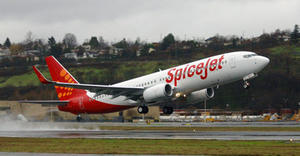Conversation with HSNWStephanie Rowe: 100 percent secure air travel not possible
Stephanie Rowe, CEO of NEXT, LLC and former assistant administrator for Transportation Threat Assessment and Credentialing (TTAC) at the Transportation Security Administration (TSA), was interviewed by Homeland Security NewsWire’s executive editor, Eugene Chow; Rowe discusses the impossibility of a 100 percent secure system, the need for a real dialogue on security with an understanding of risk management, and the challenges of implementing large technological projects across the government

100 percent security is not possible // Source: kaushikbiswas.org
HSNW: It seems that Transportation Security Administration (TSA) screeners are in a thankless position, where if they miss any prohibited items they receive sharp criticism and if they search too thoroughly they receive sharp criticism. Is there a middle ground between these two extremes?
Stephanie Rowe: What I would like to see is the country have a real conversation around what I call a “right versus right” conversation. We have a right to privacy and we have a right to feel secure. We also have a right to expedited commerce and a right to security. Personally, I think that there is a balance. But I think you are absolutely right to say that TSA gets criticized, you have GAO [Government Accountability Office] saying to them, “You are not detecting stuff.” But the minute you go look where things are hidden, people are not happy with that either. You cannot win in that circumstance.
So I think as a country, we absolutely have to recognize that this is a right versus right conversation. What are we willing to tolerate and there are tradeoffs. In terms of risk management, you’re never going to be 100 percent secure in everything.
When we debate security versus privacy or security versus commerce, we need to understand that it all takes place in the context of risk management. We need to get real about what are those tradeoffs. For example in the context of the speed limits in this country, we all choose to drive at sixty-five, seventy-five, or some people more than that and people die because of it. We could all drive five miles an hour, but we do not. We accept the cost of lives in the spirit of getting where we want to go in a reasonable amount of time. So I find it interesting that we do not accept the same level of risk within aviation security as we do in highway safety as an example.
HSNW: That is very interesting that you bring that up. It seems that the public dialogue is fixated on this 100 percent secure system where even a failed attempt is seen as somewhat of a success for terrorist organizations, at least in the sense that they successfully managed to sneak a device past security. So must we as a nation then come to grips with the facts that some planes might be brought down or some weapons might make it
